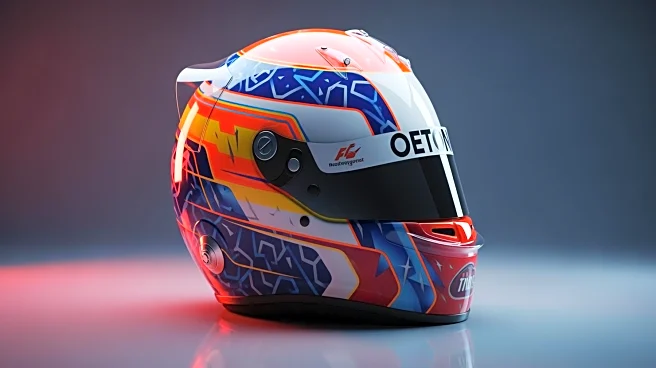What's Happening?
Formula 1 driver Oscar Piastri has defended his actions following a controversial penalty at the Sao Paulo Grand Prix. Piastri received a 10-second penalty after a collision with Kimi Antonelli's Mercedes, which also involved Charles Leclerc's Ferrari.
The incident occurred during a restart after a safety car period, with Piastri attempting to overtake Antonelli and Leclerc. The penalty affected Piastri's chances for a podium finish, leaving him in fifth place and 24 points behind championship leader Lando Norris. Piastri maintains that he had a clear opportunity and was forced to react to Antonelli's positioning.
Why It's Important?
The penalty and subsequent race results have significant implications for the Formula 1 championship standings, with Piastri falling further behind in the title race. The incident highlights the competitive nature of F1 and the challenges drivers face in making split-second decisions during high-pressure situations. Piastri's defense of his actions reflects the complexities of race strategy and the impact of penalties on championship aspirations. The outcome may influence team dynamics and strategies in the remaining races, as drivers and teams seek to maximize their performance and secure favorable positions.
What's Next?
With three rounds remaining in the F1 season, Piastri and his team will need to focus on improving race performance and minimizing errors to regain ground in the championship race. The upcoming races will be crucial for Piastri's title hopes, requiring strategic planning and execution. The incident may also prompt discussions within the F1 community about race regulations and penalty assessments, potentially leading to adjustments in how such situations are handled. As the season progresses, the competition is expected to intensify, with drivers and teams vying for top positions.
Beyond the Headlines
The penalty incident underscores the broader challenges of maintaining fairness and consistency in race officiating. The subjective nature of penalty decisions can lead to debates and controversies, affecting the sport's integrity and reputation. The situation also highlights the importance of driver skill and adaptability in navigating complex race scenarios, as well as the role of teamwork and communication in achieving success. As F1 continues to evolve, these factors will remain critical in shaping the sport's future and its appeal to fans worldwide.















